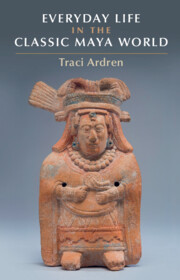7 - Conclusion
Published online by Cambridge University Press: 01 June 2023
Summary
Today approximately 6 million people who live in the area explored in this book, but also in a diaspora that includes places like Dallas, Texas, and Vancouver, British Columbia, speak one of the many Mayan languages. Learning Mayan at home is a key component of what it means to be a Maya person in the 21st century, as Maya culture is no longer centered only on the maize agricultural system and dynastic kingship we discovered in earlier chapters. Now Maya people create hip-hop, practice law, win the Nobel prize, and also continue to farm small-scale maize fields where they plant corn, beans, and squash as did their ancestors. They live in the large cities of modern Guatemala and in small villages high in the remote mountain ranges of Belize. They do not agree on what it means to be Maya, a term that originated in the colonial period1 but was not embraced by people in the area until much later. They do not agree if the name “Maya” is even meaningful to all of them in the same way,2 other than describing their language family. However, from an outside perspective, Maya culture has both transformed and survived and is an example of one of the most resilient cultures known to scholars of history and culture. But how did we go from royal palaces to hip-hop? What happened between the 9th and 21st centuries? How do Maya people today understand their glorious ancient past – the queens, hieroglyphic panels, and masterpieces of art? What parts of the ancient daily lives we have just discussed are still salient to Maya people today?
- Type
- Chapter
- Information
- Everyday Life in the Classic Maya World , pp. 147 - 162Publisher: Cambridge University PressPrint publication year: 2023

